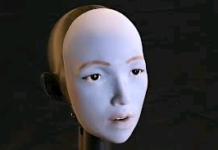When you purchase through links on our site, we may earn an affiliate commission. This doesn’t affect our editorial independence.
Aging is an inevitable change that happens to the human body, where youthfulness fades and vigor is diminished. Moreover, due to the improvement in health facilities such as medical technologies, the population of growing adults has reached an all-time high. With 10% of the world projected to be aged 65 and above.
The need to ensure proper quality of life for older adults is now a pressing one. Thankfully, the burden of ensuring the latter years of older adults are comforting has seen a boost with the technological advances that have changed the playing field. Technological advancements have brought innovations to therapy and care; managing health conditions through palliative care has seen a turnaround. Let’s see the details.
Medical Technology Transforming Care of Older Adults
VR for pain relief and rehabilitation
One of the greatest advances in care for older adults is the use of virtual reality devices for therapy and rehabilitation. Fascinatingly, these devices have been tested and proven to show magnificent results in physical and mental therapy. It has been used to mitigate anxiety during open surgery by using virtual imagery of serene environments. Medical technology has also been used to reduce surgical pain and aid post-surgery recovery.
RelieVRx, an FDA-approved VR device, has proved effective in reducing back pain among patients through cognitive behavioral therapy (CBT). Also, novel VR inventions like ‘Infusionarium’ developed by Reimagine Well have been shown to create therapeutic virtual experiences for patients to help them ease their trauma pain and for rehabilitation for cancer. Read more on VR
Implantable & Wearable Medical Technology Devices
Several implant devices have been incorporated into therapy after showing tremendous results in reducing pain in patients. These devices utilise the normal psychology of the body to produce stimulation that blocks or reduces pain. Specifically for older ones with spinal or back distress, these implants have proven useful. A study showed that 80% of patients aged 90 and above who were treated with spinal surgeries using the latest medical technologies had major improvements.
Robotics for companionship and memory care
Robots are also playing their part in helping to bridge the gap for companionship, menial assistance, and memory retention. Interestingly, they can keep individuals engaged and safe and improve their mobility. Robotic technology has seen immense advancement in its abilities.
Studies and demonstrations have shown robots can now identify external stimuli, gather information while observing patterns, use deep learning techniques, and perform additional analysis to produce response behaviour that aligns smoothly with humans. Additionally, these capabilities have been used in dementia care to enhance mental or emotional well-being. Major trailblazers in medical technology include Paro, CompanionAble, and Hyodol, to mention a few.
AI analytics for diagnostics
Artificial intelligence uses its data-analysing abilities to provide preventive and diagnostic care. The ability of artificial intelligence to collect data without exhaustion or analysis patterns unnoticeable to the human eye is the true goldmine.
Specifically, devices like TrueLoo by Toi Labs prove effective in detecting changes in health through routine stool examination. Also, a novel AI tool developed by Mass General Brigham has shown real promise for diagnostic care. Additionally, its ability to observe brain waves during sleep through EEG and detect early stages of disease conditions allows for proper therapy.
AI has been successfully applied to the detection and prognosis of heart conditions. Medical imaging, patient data, and ECGs are all analysed using machine learning, which has been improvement in medical technology. AI is enhancing diagnoses and providing noninvasive techniques for evaluating cardiovascular risks, potentially saving lives, since studies have demonstrated remarkable accuracy rates, including a 93% classification accuracy for heart disease.
Medical technology keeps growing, and the innovations give hope for the world with agile older adults. A world where palliative care is blissful and every age allows living in full.









